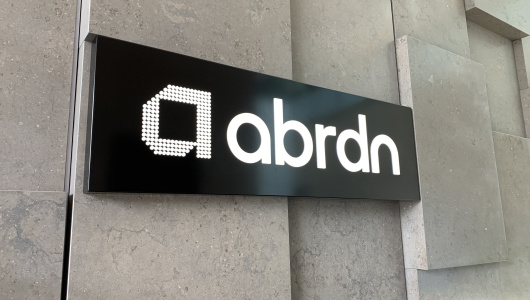
The FCA is cracking down on crypto ATM operators.
Earlier this year, the regulator – alongside law enforcement agencies – raided several sites around the country suspected of hosting illegally-operated crypto ATMs.
Several arrests were made and crypto cash machines seized.
This week, the FCA announced its first crypto criminal prosecution. The regulator said it has charged a 45-year-old Londoner with running illegal crypto ATMs.
Olumide Osunkoya is being charged with two offences under the money laundering, terrorist financing and transfer of funds regulations.
He is also charged with two offences under the Forgery and Counterfeiting Act 1981 relating to false documents, as well as an offence of possession of criminal property under the Proceeds of Crime Act 2002.
Osunkoya is the first person to be prosecuted for illegally operating crypto ATMs in the UK.
He is accused of processing £2.6m in crypto transactions across multiple locations between 29 December 2021 and 8 September 2023.
During that period, he acted as a director of a company named Gidiplus Ltd and later as a sole practitioner.
Gidiplus Ltd’s registration application was rejected by the regulator in 2021. A judicial review was also rejected by the High Court.
However, the FCA said this didn’t deter Osunkoya from running his Crypto ATMs without authorisation.
He will appear at Westminster Magistrates’ Court at the end of the month.
Therese Chambers, joint executive director of enforcement and market oversight at the FCA said: “Our message today is clear. If you’re illegally operating a crypto ATM, we will stop you.
“If you’re using a crypto ATM, you are handing your money directly to criminals. Criminals can exploit crypto ATMs to launder money globally.”
The FCA said all such machines must be shut down or it will take action.
Crypto ATMs allow customers to buy or convert money into cryptoassets. There are no legal crypto ATM operators in the UK.
However, this has led to an underground web of crypto ATMs dotted around the country.
There are 81 functional crypto-ATMS in the UK, according to crypto-ATM directory Coin ATM Radar.
It is alleged that most of the crypto ATMs are used for money laundering and other criminal activities.
Kent police recently arrested a shopkeeper after seizing a number of crypto ATMs, including one that was on public display.
He is alleged to have laundered £300,000 of criminal cash by converting it into cryptocurrency.
The FCA crackdown follows similar enforcement actions by regulators in other jurisdictions such as the US and Germany.
In the US, where the vast majority of the global crypto ATMs are located, the authorities are shutting them down too.
Nearly 700 ATMs were seized by US law enforcement agencies between July and August.
One of them was Bitcoin of America, which shut down operations after several customers complained that they were collectively scammed out of tens of thousands of dollars.
Similarly, the FCA’s German equivalent, BaFin, seized 13 crypto ATMS from several locations. It said the machines could attract a hotbed of criminal activity.
Meanwhile, the FCA crypto clampdown is seen as too little for many who want tougher action.
Nick Barnard, partner at Corker Binning, said: “While cracking down on unauthorised crypto ATMs makes for headlines, in reality this is a distraction from the real challenges faced by the FCA in regulating cryptoassets.
“Even at their peak in 2020, the number of crypto ATMs operating in the UK was estimated to be in the low hundreds.
“Partly as a result of FCA intervention, none of those are known to remain in operation.
“Even when they were, crypto ATMs served a niche market of those seeking to exchange physical cash for cryptocurrency.
“By way of illustration, while the £2.6m allegedly processed by Mr Osunkoya’s enterprise is not insignificant, it is dwarfed by the $226m of transactions handled by part of the Coinbase Group in contravention of a Voluntary Requirement, resulting in a recent FCA fine of £3.5m.”
Mike Ringer, a financial services partner with law firm CMS, added: “It is surprising that this is FCA’s first criminal prosecution relating to unregistered cryptoasset activity under the money laundering regulations, especially as the registration regime has applied since January 2020.
“Frankly, though, this is the low hanging fruit for the FCA; cryptoasset ATMs are few and far between.
“There is much more public harm arising from unregistered cryptoasset exchanges or custodians or from breaches of the financial promotion regime by cryptoasset firms.
“There have been no criminal prosecutions in these vital sectors at all, and this is where the regulator needs to focus its enforcement efforts.”
However, the FCA has stressed that it will continue to take a zero-tolerance approach to crypto.
It warned people that crypto remains largely unregulated in the UK and is high-risk.
Advisers have consistently been the one demographic that have heeded the FCA’s call.
They have shielded the assets of their clients from the high-stake crypto casino. And this is commendable.















Machines which exchange crypto assets for Sterling/Euros/Dollars/Yen may largely exist to provide an artificial representation of the liquidity of a particular crypto currency(ies). ‘You can draw it out at a cashpoint…..’ is an appealing line. Stocking a few cash machines and permitting them to discharge a limited amount in conventional currency is a cheap way of promoting an essentially worthless ‘digital expression’ as a recognised and conventional means of exchange. A Madoff type misrepresentation in all probability. The FCA is right to act quickly.